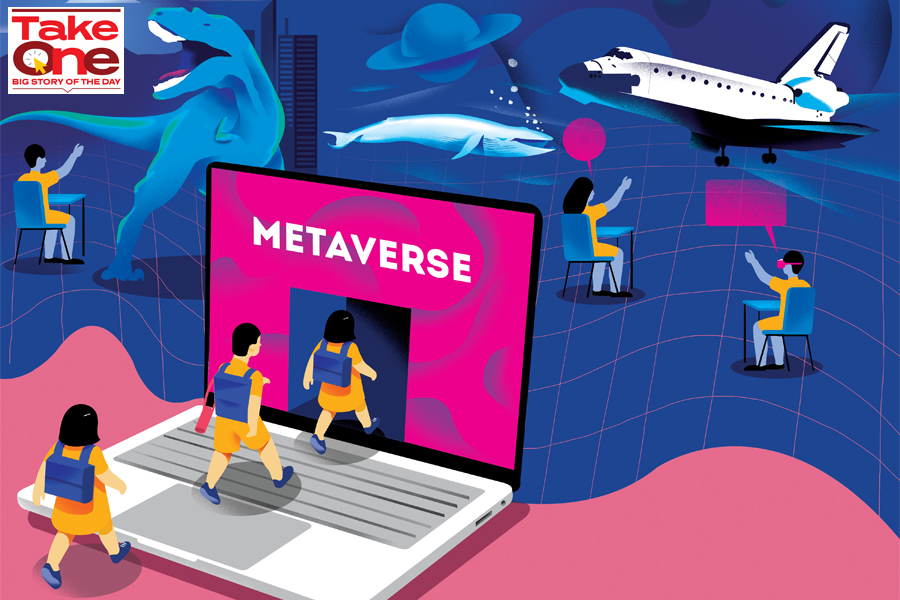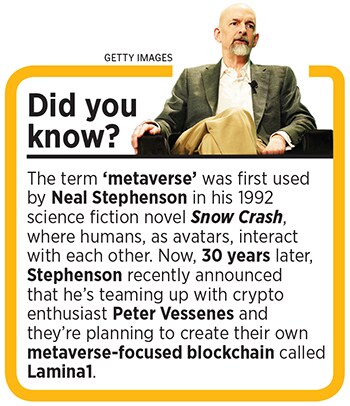
What will learning in the metaverse look like?
Online learning just became mainstream, and now a handful of startups have started reimagining the future of education once again in India by working to integrate the metaverse into everyday learning
 Metaverse is a move towards improvising a personalised and engaging experience for the kids
Illustration: Sameer Pawar
Metaverse is a move towards improvising a personalised and engaging experience for the kids
Illustration: Sameer Pawar
Imagine a classroom full of students where the history teacher is taking a lecture on the Harappa civilisation, the earliest known urban culture in the Indian subcontinent. Rather than reading the chapter from a book, the teacher takes the students to Harappa in Punjab, followed by Mohenjo-daro near the Indus river in the Sindh region. A chronological sequence of events is projected in front of the students and the students go around the sites, discover, ask questions, and learn.
This is what the future of education will look like in the metaverse, a virtual recreation of the real world. Users and developers can customise it in their own way, building anything from a metaverse school to virtual sports arenas.
Students and teachers can meet up in the digital space through virtual reality headsets irrespective of their real-life location. Then come the visual possibilities of a metaverse school. The teacher can talk about discoveries and show them to students in an immersive 3D environment at the same time. Educators can build virtual landscapes based on their lesson plans. Using virtual reality in schools can add value to traditional education models, whereby children can visit places from the past or conduct dangerous experiments in a safe virtual environment. For example, there can be simulations to teach students physics concepts, or a role-playing simulation of historic events. The actual communication between the teacher and the student during these lessons, however, happens in the real world.
Metaverse became a buzzword ever since Mark Zuckerberg rebranded Facebook to Meta in October 2021. Called the future of the internet by many, the metaverse can be accessed through virtual reality (VR) and augmented reality (AR) headsets and with phones, consoles, and linked gadgets. A white paper produced for Meta in May by the independent economic consultancy Analysis Group estimated the metaverse economy could be worth more than $3 trillion globally in a decade.











